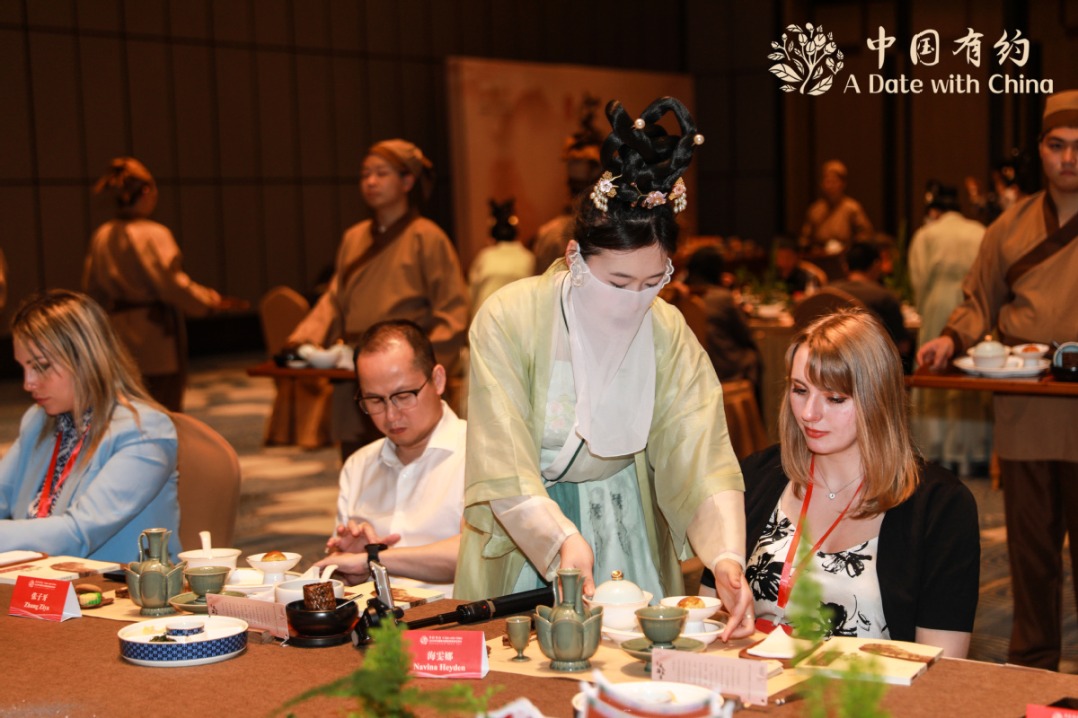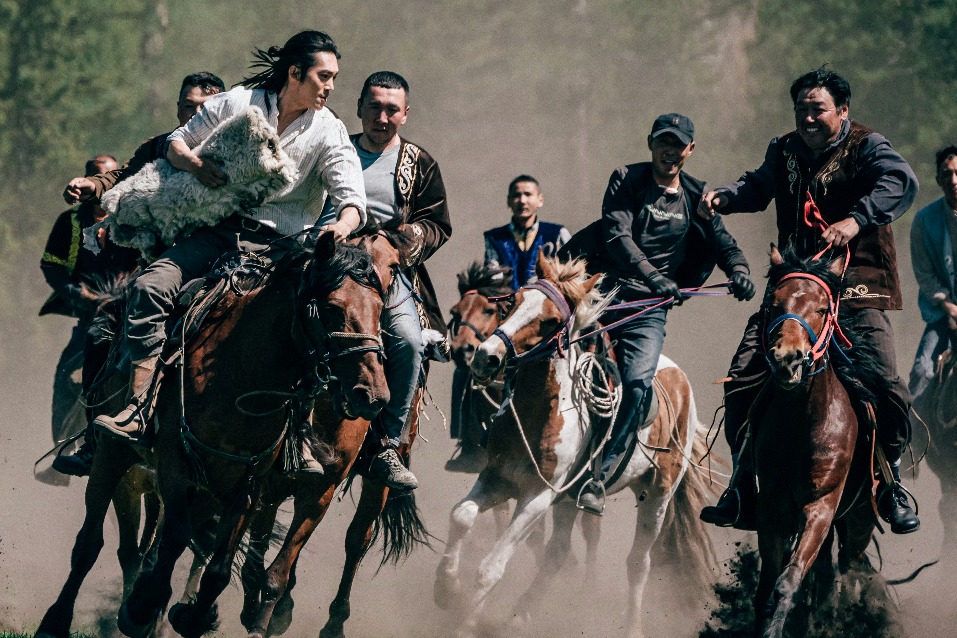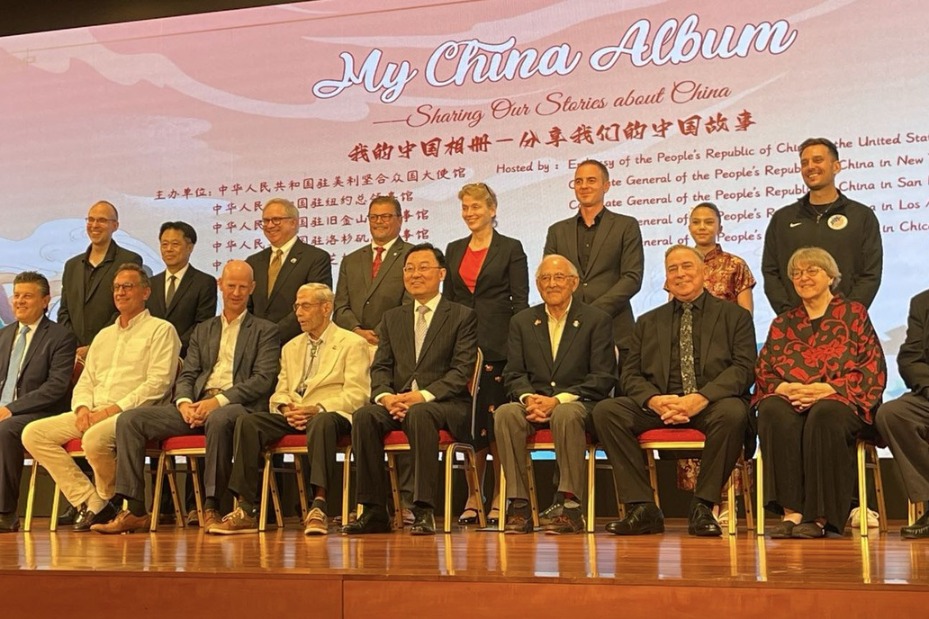Kung fu enthusiast strikes a blow for understanding
By Mingmei Li in New York | China Daily | Updated: 2023-11-15 10:05

When Clint Liddick from the United States lived in China, his daily routine was more than hectic, studying at college during the day and trying to master martial arts in another city in the evening.
For breakfast, he would grab a tray of steamed xiaolongbao, a type of dumpling, and a tea egg. After finishing his college classes, he would take a 40-minute subway trip from Guangzhou to Foshan, both in Guangdong province, to go to a kung fu master's house and train for several hours before making the return trip. He repeated the same sequence almost every day.
Liddick said "it's exciting when someone really wants to learn something", and someone really wants to share their knowledge. "I'm not super skilled, but I learn quickly. I wanted to learn as much as I could take in," the 33-year-old who studied Chinese kung fu, or wushu, for 20 years, said. "Teachers wanted to share as much as they have."
Liddick grew up in a Christian family on the East Coast of the United States, where he said there wasn't much cultural diversity. However, through his mother he was exposed to different beliefs — including Buddhism and Taoism, which fostered his interest in Chinese culture.
Life-changing sport
At 13, Liddick weighed 113 kilograms and was considered overweight. Searching for a sport that interested him, he chose a local kung fu school run by an American Hawaiian Chinese teacher. He lost 23 kg after practicing wushu for a while.
"As I was a teenager I continued to lose weight. (Wushu) literally changed my life," he said.
Liddick saw that wushu offered more than just a means of managing his weight. Unlike team sports such as basketball or football, which he found too aggressive, he was drawn to the individualistic nature of martial arts. Even now, as a software engineer in San Jose, California, he finds that wushu enhances his ability to think critically and maintain composure under stress.
"It's your individual achievement. You are competing only with yourself to get better and better," he said. "It's a sport that pursues a wonderful balance between body and brain. It's very physically demanding; you have to really work hard at it to have any skill to do the movements correctly."
He said while his teacher imparted considerable knowledge, he also helped him make connections with the broader kung fu community, enabling him to engage with professional practitioners.
Liddick had an interest in mathematics and science at high school, but he decided to major in East Asian Studies and the Chinese language at the University of Pittsburgh, which also has a Confucius Institute.
During his college years, Liddick had the opportunity to study in China at Sun Yat-sen University, in Guangzhou, Guangdong, where he was able to further his studies in Chinese language and culture. He also took the opportunity to learn authentic Chinese kung fu, encompassing both traditional and modern styles.
"My connection to China has always brought a lot of wonderful craziness, wonderful randomness into my life. As I showed up for a class one day to train in kung fu, the teacher said, 'Don't get changed (into your wushu clothes), we're going to an event,'" he recalled.
For him, learning wushu wasn't just about mastering the movements or understanding the philosophy; it was also about connecting with the larger kung fu community. This involved meeting people, engaging in conversations to share experiences and delving into in-depth knowledge about the world and its concepts, or simply hanging out with people and sitting down for a cup of tea, he said.
While in China, Liddick also competed in the Chinese Proficiency Competition for Foreign College Students, an experience he said further shaped his Chinese language learning journey.
"I was fairly good in school and had good grades, but seeing the level that people really commit to and learning something new from your peers is motivating," he said. "I don't have to be satisfied with my current level. It's possible to get way better."
Wider experience
Liddick's experiences in China weren't limited to studying wushu and Chinese in metropolitan areas like Guangzhou, Beijing, or Shanghai; he also ventured into rural regions for volunteer work.
In Yibin, Sichuan province, he helped a group build a library at an elementary school.
"I couldn't see a single building. Even the dirt looked different, every plant and the shape of the ground. Everything looked a little different in a sort of wonderful but very strange way."
Liddick said this was "sort of a wake-up call" as he knew some of the language and had some Chinese friends, but "I really didn't understand how different their reality is".
That realization humbled him. He said it was a slap in the face at first, but he came to see that the differences were wonderful, enhancing his understanding of diversity and inclusion, and how to bridge the gap between cultures.
"The two countries, China and the US, each with very different views of the world, literally stand on opposite sides of the world with very different situations, very different histories, very different cultures," he said. "Language is important. Understanding who's around you and who you are talking with is super important. America has a proud boxing tradition, and China has wushu."
























